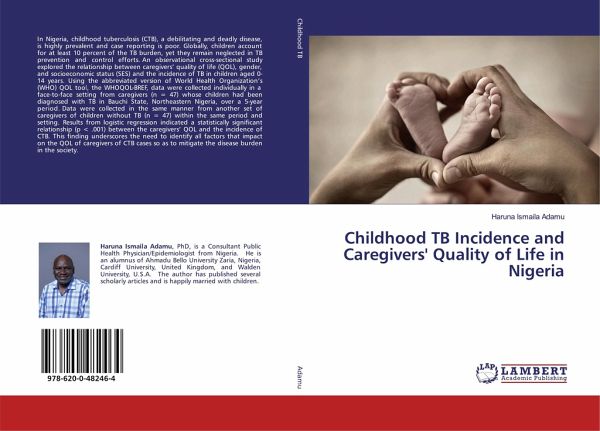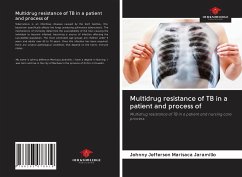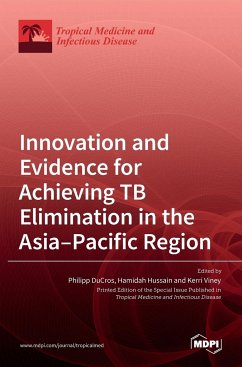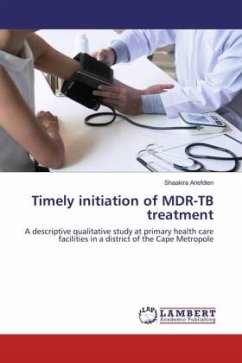
Childhood TB Incidence and Caregivers' Quality of Life in Nigeria
Versandkostenfrei!
Versandfertig in 1-2 Wochen
47,99 €
inkl. MwSt.

PAYBACK Punkte
24 °P sammeln!
In Nigeria, childhood tuberculosis (CTB), a debilitating and deadly disease, is highly prevalent and case reporting is poor. Globally, children account for at least 10 percent of the TB burden, yet they remain neglected in TB prevention and control efforts. An observational cross-sectional study explored the relationship between caregivers' quality of life (QOL), gender, and socioeconomic status (SES) and the incidence of TB in children aged 0-14 years. Using the abbreviated version of World Health Organization's (WHO) QOL tool, the WHOQOL-BREF, data were collected individually in a face-to-fa...
In Nigeria, childhood tuberculosis (CTB), a debilitating and deadly disease, is highly prevalent and case reporting is poor. Globally, children account for at least 10 percent of the TB burden, yet they remain neglected in TB prevention and control efforts. An observational cross-sectional study explored the relationship between caregivers' quality of life (QOL), gender, and socioeconomic status (SES) and the incidence of TB in children aged 0-14 years. Using the abbreviated version of World Health Organization's (WHO) QOL tool, the WHOQOL-BREF, data were collected individually in a face-to-face setting from caregivers (n = 47) whose children had been diagnosed with TB in Bauchi State, Northeastern Nigeria, over a 5-year period. Data were collected in the same manner from another set of caregivers of children without TB (n = 47) within the same period and setting. Results from logistic regression indicated a statistically significant relationship (p < .001) between the caregivers' QOL and the incidence of CTB. This finding underscores the need to identify all factors that impact on the QOL of caregivers of CTB cases so as to mitigate the disease burden in the society.












